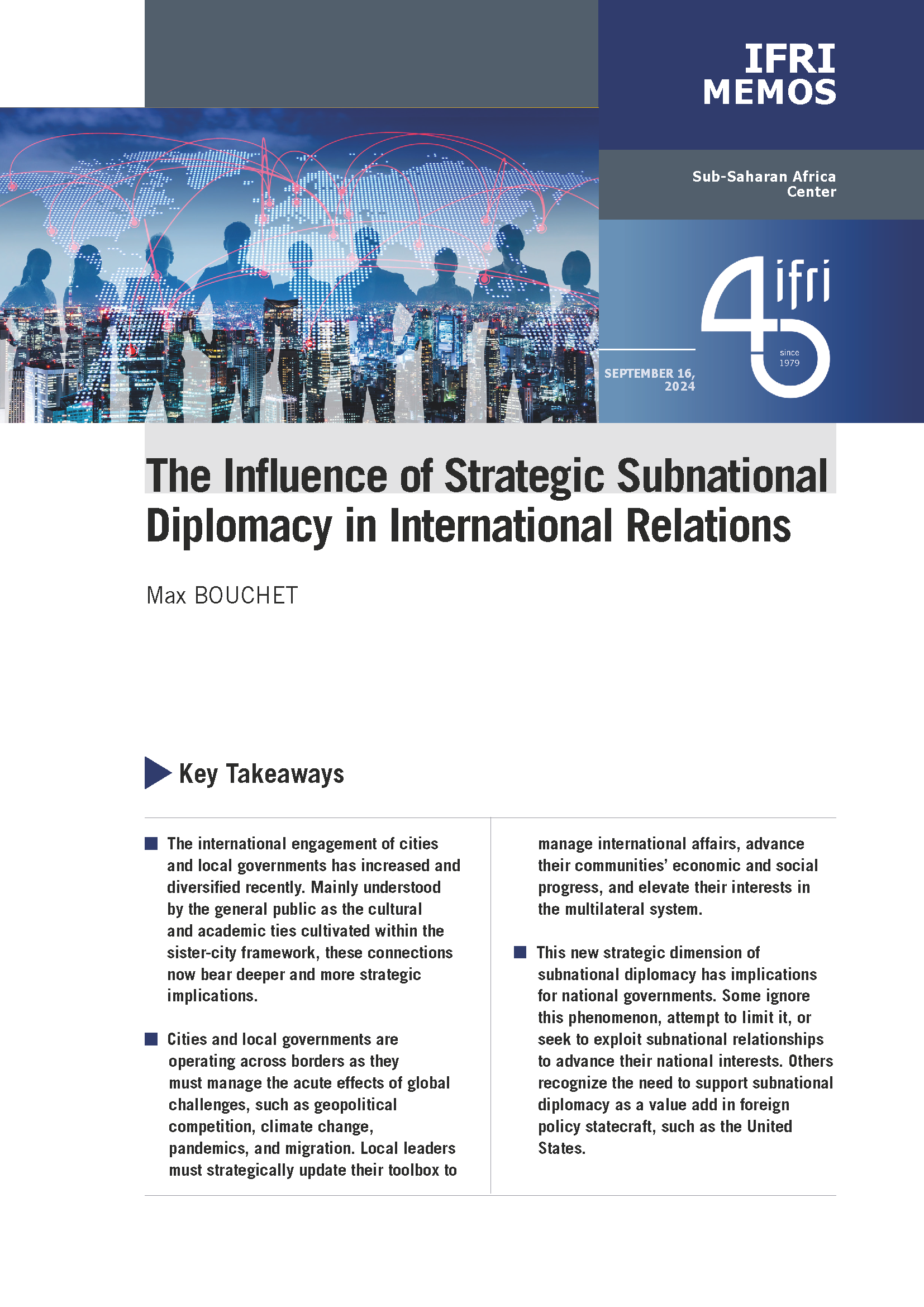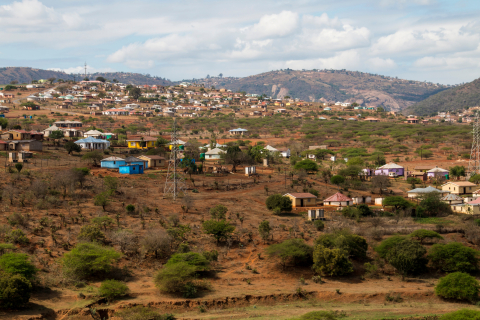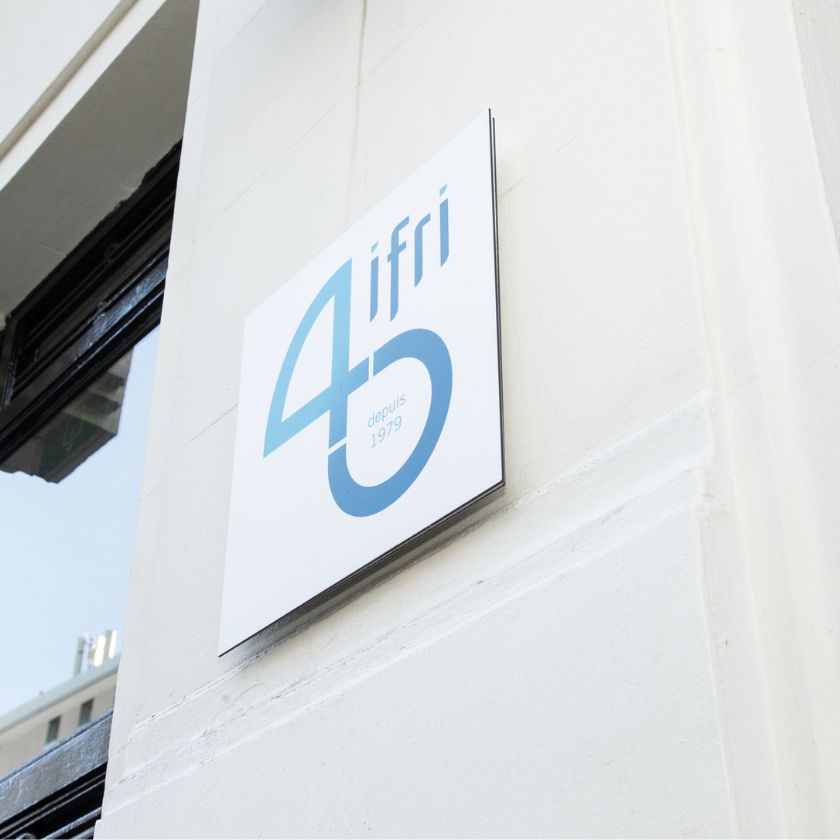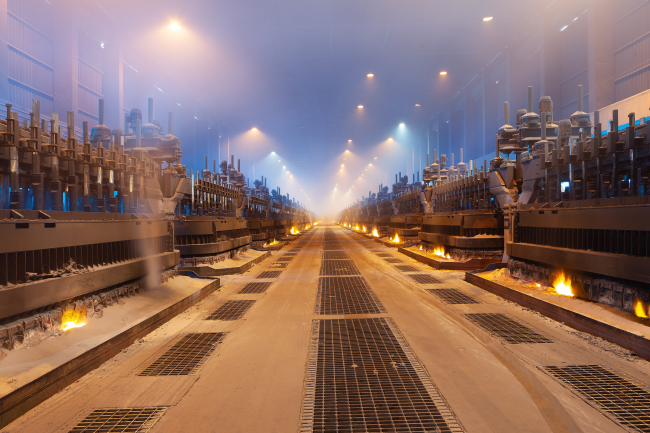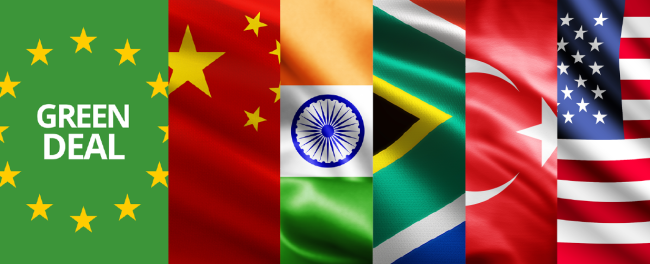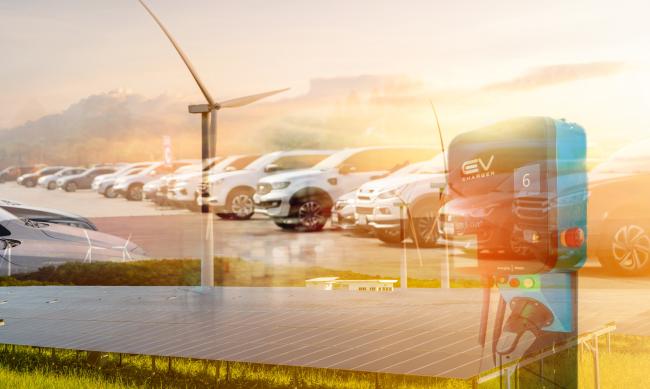What Role for the EU in Doha?

Historical leader of the fight against climate change, the European Union’s influence declined in Copenhagen. This opened the way to the so-called BASIC countries to show their willingness to become a driving force in the international climate agenda. Interestingly enough, the Copenhagen conference also introduced a welcome shift in the traditional UN separation between developed and non-developed countries.
If industrialized countries are responsible for most of current GHG emissions, emerging countries are the biggest emitters of tomorrow. However, Cancun conference and a strong pressure from the G77 reverted to the North/South partition. Durban saw a regain of European influence as the EU was key to open the discussions on the extension of the Kyoto protocol up to 2020 and to lay the foundations of long term discussions to pursue international agreements beyond 2020.
Yet according to the recent BASIC countries" joint ministerial statement, the ever present battle over the principle of "common but differentiated responsibility" is far from over. So far, among the major emitting countries, the European Union seems to be the only one to keep pushing for a binding agreement. One can wonder if the European Union has an interest to insist on such an agreement whereas the shortcomings of such an approach have been showcased notably by Canada. The country failed its Kyoto commitments and left the protocol without paying any penalties. Instead, India, a fierce negotiator, and most emerging countries (and of course for obvious reasons US) are aiming to work toward a new non-binding agreement that would take effect in 2020. Furthermore, the EU gave up the implementation of the international aspects of the EU-ETS legislation, postponing the introduction of aviation’s GHG emissions in its cap and trade system by one year. The Climate Commissioner explained this decision as a way to acknowledge the progress being made in negotiations on a global emissions deal. This however also illustrates the EU struggle to export its climate governance model beyond its borders. This kind of unilateral decision has indeed been unpopular very early on with countries such as the US, China and India. Multilateralism is the key when addressing climate change issues. Europe should remember to work on solutions acceptable by third parties.
European decision makers need to take into account Europe’s economic crisis. (1) It is well past time for Europe to put costs as one of the main drivers of its energy system, a notion that seemed to have been forgotten as Europe made the choice of one of the most expensive model. (2) They also have a responsibility with regard to European citizen to protect their industry. In this respect, committing to a 30% reduction by 2030 might be a very dangerous move.
Should Europe aim to remain THE leader or rather settle to be a driving force of climate international negotiations among others? The share of EU GHG emissions in 2020 and beyond is not significant enough to justify that EU assumes more than it can. Instead, EU should join others" efforts to contribute to the establishment of a future agreement and avoid well known deadlocks such as those triggered by “binding targets” in not so ancient discussions.

Also available in:
Regions and themes
Share
Related centers and programs
Discover our other research centers and programsFind out more
Discover all our analysesThe Aluminum Value Chain: A Key Component of Europe’s Strategic Autonomy and Carbon Neutrality
The United States of America (US), Canada and the European Union (EU) all now consider aluminum as strategic. This metal is indeed increasingly used, especially for the energy transition, be it for electric vehicles (EVs), electricity grids, wind turbines or solar panels.
The EU Green Deal External Impacts: Views from China, India, South Africa, Türkiye and the United States
Ahead of June 2024 European elections and against the backdrop of growing geopolitical and geoeconomic frictions, if not tensions, between the EU and some of its largest trade partners, not least based on the external impacts of the European Green Deal (EGD), Ifri chose to collect views and analyses from leading experts from China, India, South Africa, Türkiye and the United States of America (US) on how they assess bilateral relations in the field of energy and climate, and what issues and opportunities they envisage going forward.
Electric Vehicles: A Strong and Still Understated Performance
Electric vehicles (EVs) are better for the climate – even in worst-case scenarios. Across its life cycle, a typical European electric car produces less greenhouse gas (GHG) and air pollutants or noise than its petrol or diesel equivalent. Emissions are usually higher in the production phase, but these are more than offset over time by lower emissions in the use phase. According to the European Environment Agency’s report on electric vehicles, life cycle GHG emissions of EVs are about 17-30% lower than those of petrol and diesel cars.
How Can the Green Deal Adapt to a Brutal World?
The European Green Deal has not been planned for the current extraordinarily deteriorated internal and external environment. Russia’s war in Ukraine, higher interest rates, inflation, strained public finances, weakened value chains, and lack of crucial skills pose unprecedented challenges.


